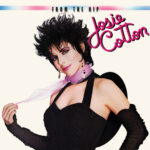 Josie Cotton, born Josie Jones, is a singer-songwriter best known for her work in the new wave and power pop genres during the early 1980s. With her hit single “Johnny Are You Queer?” and appearances in iconic films like Valley Girl, Cotton became a significant figure in the era’s music scene. Her career, characterized by its blend of catchy pop melodies and satirical lyrics, reflects both the vibrancy and the challenges of the 1980s music industry.
Josie Cotton, born Josie Jones, is a singer-songwriter best known for her work in the new wave and power pop genres during the early 1980s. With her hit single “Johnny Are You Queer?” and appearances in iconic films like Valley Girl, Cotton became a significant figure in the era’s music scene. Her career, characterized by its blend of catchy pop melodies and satirical lyrics, reflects both the vibrancy and the challenges of the 1980s music industry.
Early Life and Influences
Josie Cotton was born in Dallas, Texas, where she developed an early interest in music. Growing up, she was influenced by a diverse range of musical styles, including rock, pop, and punk. Artists such as David Bowie, The Ramones, and Blondie played a significant role in shaping her musical tastes and aspirations.
Cotton’s journey into music began in earnest when she moved to Los Angeles, California, to pursue her career. The vibrant and eclectic music scene of Los Angeles in the late 1970s and early 1980s provided the perfect backdrop for Cotton to develop her unique sound. The city was a melting pot of musical experimentation, where new wave, punk, and power pop were gaining popularity, and Cotton was eager to make her mark.
Breakthrough with “Johnny Are You Queer?” (1981-1982)
Josie Cotton’s big break came with the release of the single “Johnny Are You Queer?” in 1981. Written by the songwriting duo Bobby and Larson Paine, the song was initially performed by The Go-Go’s but was popularized by Cotton’s version. The track, with its catchy melody and provocative lyrics, quickly garnered attention.
“Johnny Are You Queer?” became a controversial yet defining hit. The song’s playful take on questioning a boy’s sexuality was seen as both bold and contentious, sparking debates and discussions. Despite, or perhaps because of, the controversy, the song received significant airplay on radio stations and became a staple in clubs. It also caught the attention of mainstream media, bringing Cotton into the limelight.
The success of “Johnny Are You Queer?” was further amplified by its inclusion in the soundtrack of the 1983 film Valley Girl. The movie, which became a cult classic, featured Cotton performing the song, cementing her place in pop culture. Her role in the film and the popularity of the song established her as a prominent figure in the new wave scene.
Early Career and Image
Josie Cotton’s image and persona were integral to her appeal. With her distinctive voice, stylish appearance, and quirky fashion sense, she embodied the spirit of the 1980s new wave movement. Her music videos and live performances showcased her charismatic and energetic presence, making her a favorite among fans and critics alike.
Cotton’s early career was marked by her ability to blend catchy pop hooks with satirical and humorous lyrics. Songs like “He Could Be the One” and “Jimmy Loves Maryann” demonstrated her knack for storytelling and her playful approach to songwriting. Her music often featured themes of teenage angst, romantic entanglements, and social commentary, resonating with the youth of the time.
Continued Success and Evolution (1983-1984)
Following the success of “Johnny Are You Queer?” and her debut album, Cotton continued to build on her momentum. She released more music that showcased her versatility and growth as an artist. Her sound evolved, incorporating elements of rock, punk, and synth-pop, while maintaining her signature catchy melodies and witty lyrics.
Cotton’s ability to adapt to the changing musical landscape of the early 1980s was evident in her subsequent releases. She embraced the use of synthesizers and electronic production, aligning her music with the emerging trends of the decade. This evolution allowed her to stay relevant and continue to appeal to a broad audience.
During this period, Cotton also gained recognition for her live performances. She toured extensively, performing at various venues and festivals, both in the United States and internationally. Her energetic and engaging stage presence, coupled with her distinctive voice, made her a standout performer in the crowded new wave scene.
Challenges and Changes (Mid to Late 1980s)
Despite her early success, the mid to late 1980s brought challenges for Josie Cotton. The music industry was undergoing significant changes, with new genres and artists emerging. The rise of MTV and the increasing importance of music videos also altered the landscape, making it more competitive and visually driven.
Cotton faced difficulties in maintaining the same level of commercial success she had enjoyed earlier in the decade. The shifting musical trends and the industry’s focus on new sounds and images made it harder for her to stay in the spotlight. However, she remained committed to her craft, continuing to write and record music that reflected her artistic vision.
During this time, Cotton also explored other creative avenues. She delved into acting, making appearances in films and television shows. Her role in the movie Valley Girl had already demonstrated her acting talent, and she sought to expand her presence in the entertainment industry. This diversification allowed her to stay connected with her audience and explore new facets of her creativity.
Independent Path and Resurgence (1990s-Present)
In the 1990s, Josie Cotton took a more independent path in her career. The rise of alternative rock and the decline of new wave music led her to explore new musical directions. She continued to write and record music, often releasing it through independent labels and channels.
Cotton’s willingness to embrace change and adapt to the evolving music industry helped her maintain a loyal fan base. She experimented with different styles and sounds, incorporating elements of alternative rock, punk, and even country into her music. This period of experimentation allowed her to stay true to her artistic vision while exploring new creative possibilities.
The resurgence of interest in 1980s music and culture in the late 1990s and 2000s brought renewed attention to Josie Cotton’s work. Her early hits, particularly “Johnny Are You Queer?” and her contributions to the Valley Girl soundtrack, became nostalgic favorites for a new generation of listeners. This renewed interest led to opportunities for Cotton to perform at retro-themed events and festivals, connecting her with both old and new fans.
In recent years, Cotton has continued to release music and perform live. Her ability to blend humor, satire, and catchy melodies remains a hallmark of her work. She has also embraced social media and digital platforms to engage with her audience and share her music with a global fan base.
Legacy and Influence
Josie Cotton’s impact on the music industry extends beyond her chart successes. She is celebrated for her contributions to the new wave and power pop genres, and her influence can be seen in the work of contemporary artists who draw inspiration from the 1980s sound and style.
Her willingness to tackle controversial and provocative themes in her music, as exemplified by “Johnny Are You Queer?”, paved the way for other artists to explore similar topics. Cotton’s blend of satire and pop sensibility demonstrated that music could be both entertaining and thought-provoking.
Cotton’s fashion and image also left a lasting impression. Her quirky and stylish appearance, often featuring bold colors and playful outfits, became iconic in its own right. This sense of individuality and self-expression resonated with fans and contributed to her status as a pop culture icon.
Personal Resilience and Continued Creativity
Throughout her career, Josie Cotton has shown remarkable resilience and determination. She has navigated the ups and downs of the music industry, adapting to changes and staying true to her artistic vision. Her ability to reinvent herself and explore new creative avenues has allowed her to remain relevant and continue making music that resonates with audiences.
Cotton’s journey is a testament to the enduring power of creativity and passion. Despite facing challenges and changes in the industry, she has remained committed to her craft, constantly evolving and pushing boundaries. Her story serves as an inspiration to aspiring artists, demonstrating that success in the music industry requires both talent and tenacity.
Conclusion
Josie Cotton’s history is a compelling narrative of talent, creativity, and perseverance. From her breakthrough hit “Johnny Are You Queer?” to her continued contributions to music and entertainment, Cotton has left an indelible mark on the industry. Her ability to blend catchy pop melodies with satirical and provocative lyrics set her apart as a unique voice in the new wave era.
As she continues to create and perform, Josie Cotton’s legacy remains strong. Her influence on music, fashion, and pop culture is undeniable, and her journey serves as a reminder of the power of staying true to one’s artistic vision. Whether through her iconic hits or her ongoing creative endeavors, Josie Cotton continues to captivate and inspire audiences around the world.
This post has already been read 232 times!









